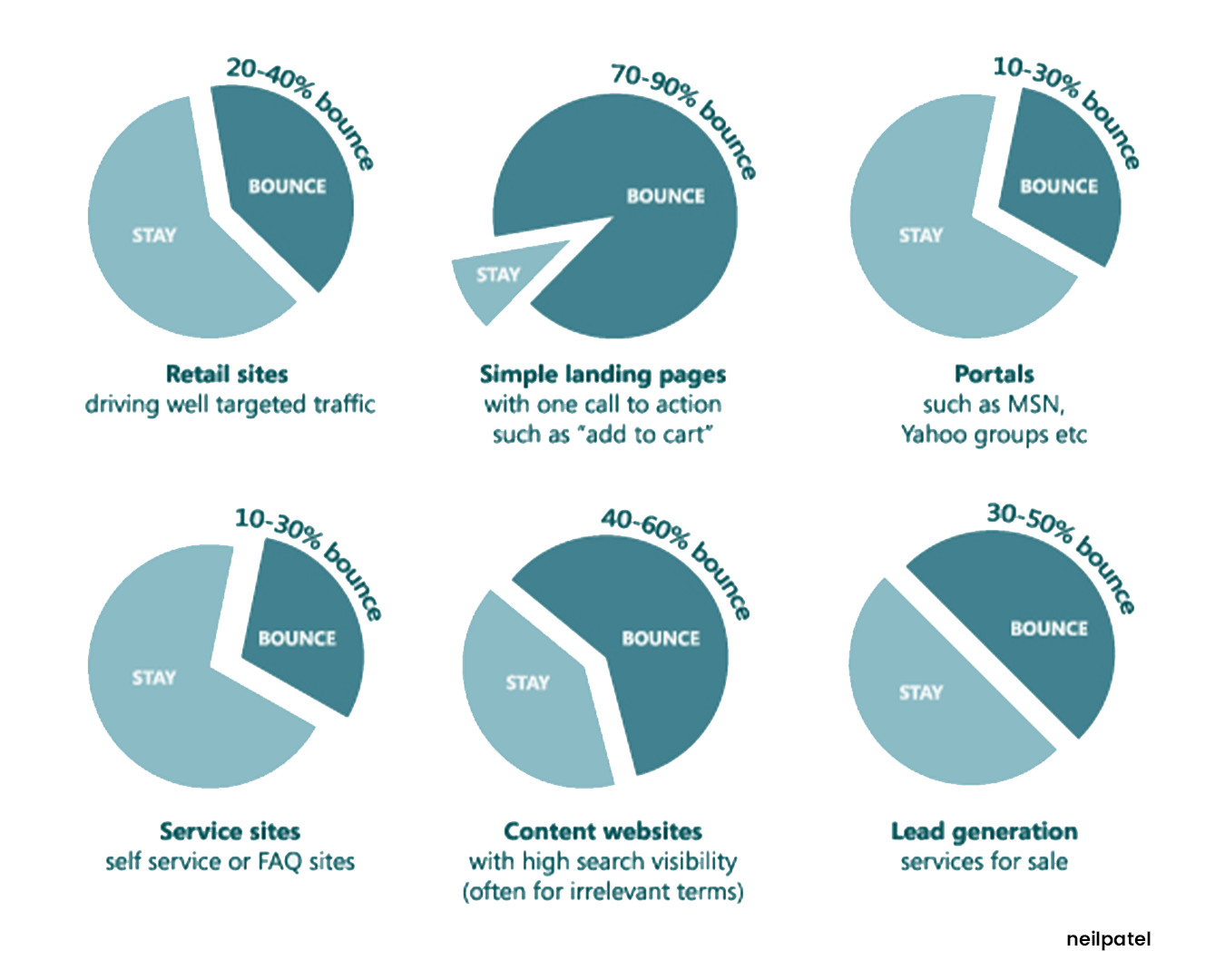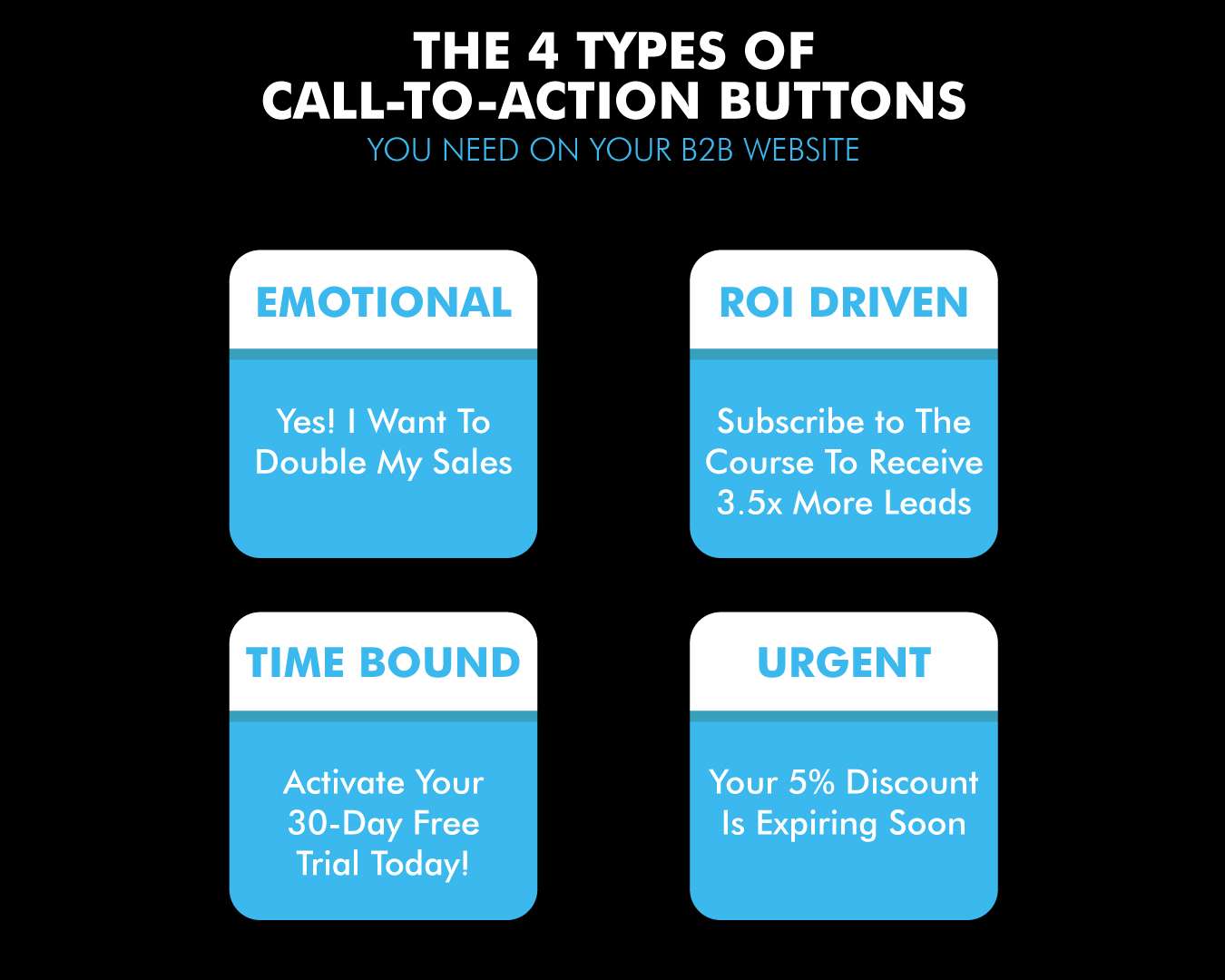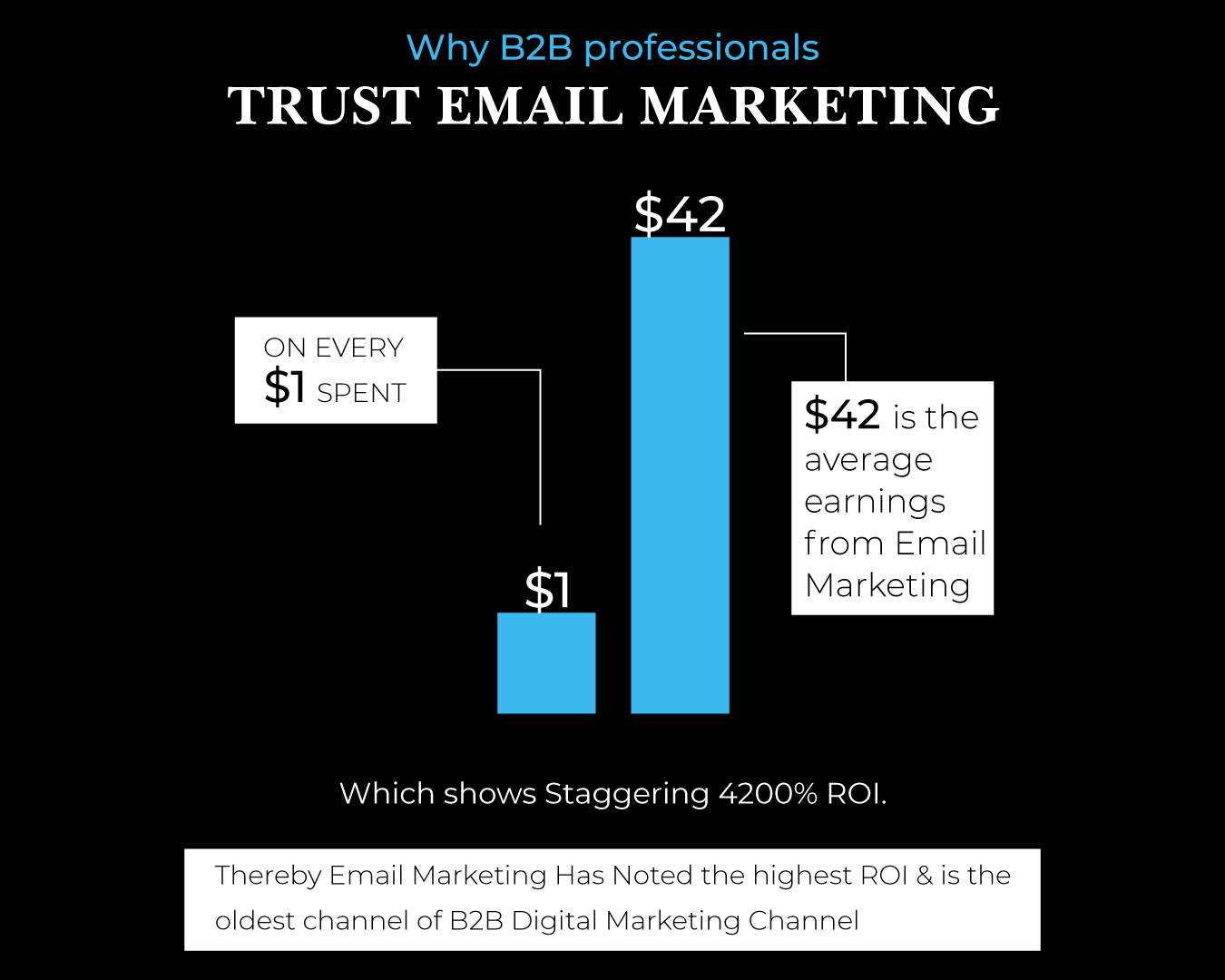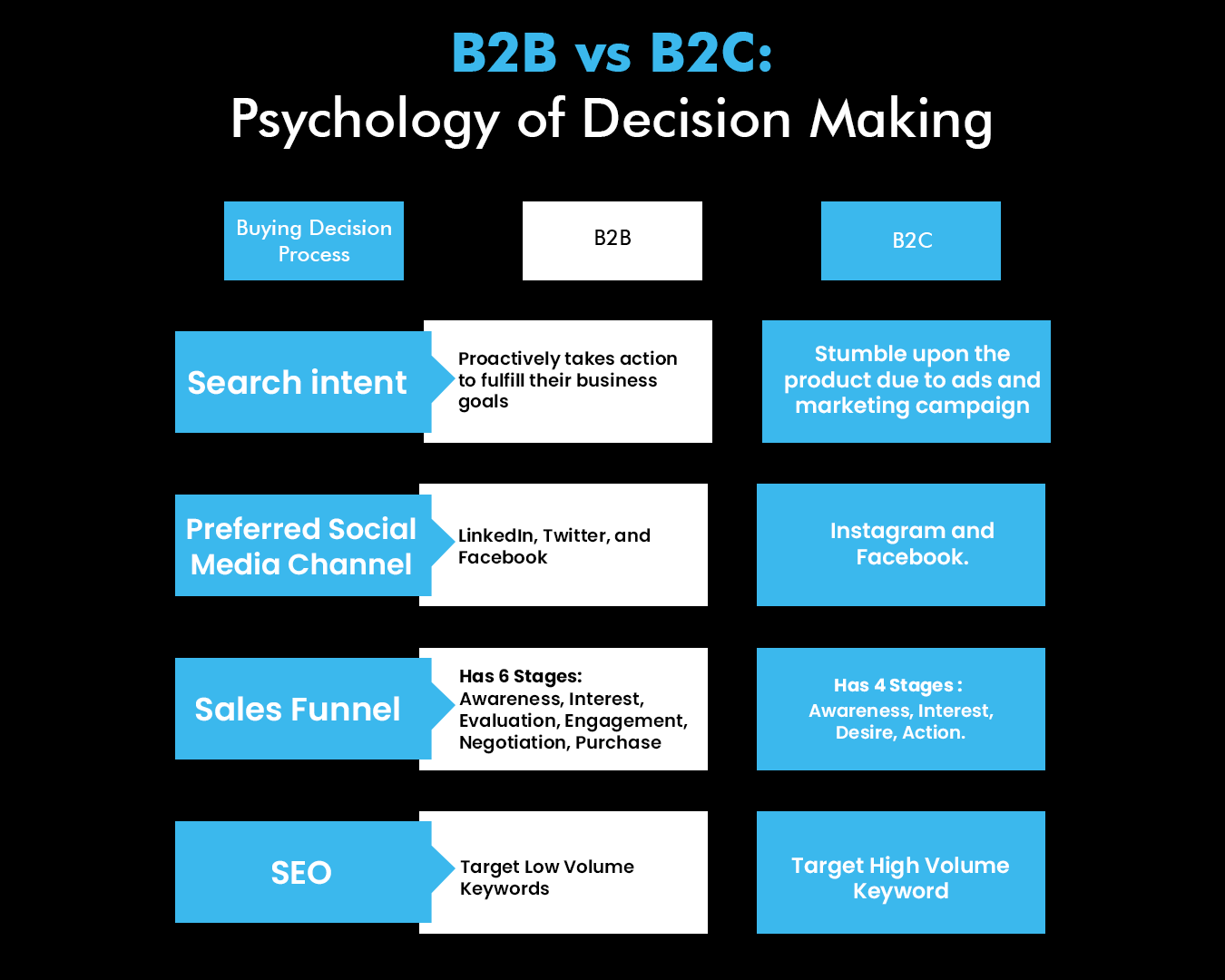
7 Most ROI Driven B2B Marketing Strategies to Use in 2023
“ The aim of marketing is to know and understand our customers so well that the product or service fits them and sells itself ”
– Peter Drucker
This iconic line by Peter Drucker is still relevant for building a B2B marketing strategy in 2023.
The business may sustain itself by selling fewer kinds of products. However, B2B firms might collapse without a curated B2B marketing strategy for the target audience.
According to a recent report, 68% of B2B marketers saw a rise in their marketing budget between 2022 and 2023 (Source: komarketing), due to increased spending across marketing channels like advertising, digital marketing, SEO, social media, content marketing, and email marketing.
The goal of crafting a B2B marketing strategy is to acquire more customers. As well as activating the sales funnel.
In order to convert leads into clients, you need to push them further toward the final stage of their journey – The Decision Making
B2B vs B2C: Psychology of Decision Making
To create a successful B2B marketing strategy, you must go through the psychology of decision-making. And further defining the buyer persona.
Who really makes the decision and at what pace?
To understand your buyer better below is the chart that explains the difference between B2B Buyers and B2C buyers.
B2B Marketing Strategy For Traditional Marketing vs Digital Marketing
We still remember some of the infamous TV ads we watched as children.
The formula for a worth-remembering Advertisement requires a compelling story, well-timed music, and relatable graphics.
As you are reading this, you probably thought of one or more advertisements.
Because that was the real power of Traditional B2B Marketing – The ability to recall and remember the brand along with the story even after years.
Then came The Internet which quickly became the new sensational medium to create ROI-driven B2B Marketing Strategies. Nevertheless, traditional marketing in the form of ads on TV, radio, and print is still prevalent and widely used.
But the marketers also felt the need to hop on the bandwagon of using Digital Channels for marketing such as social media, content marketing, PPC, and email marketing.
Here’s what you need to know
Why traditional marketing excels?
Because print and TV ads have 70% higher recall than any other medium. (Source: Times of India)
In digital marketing, your target audience is defined and further narrowed down to, say, 50 people out of 1000.
Rather than blindly targeting millions of people, what if you convert those exact 50 leads who have higher chances of becoming your clients?
As a result, In comparison to 2020, digital B2B advertising spending in the United States will further grow by 67% surpassing 14.5 billion dollars by the end of 2023. (source: Statista)
COVID has further evaluated the ‘gold mine’ of B2B marketing which is Digital Marketing. Even if the world slows down internet won’t.
Thereby you need top-notch B2B Digital Marketing Strategies not only to survive the brutality of the pandemic but to thrive despite it.
7 Most Effective B2B Digital Marketing Strategies
B2B Marketing Strategy using Landing page
Reduced attention span is more than just a popular opinion
In merely 15 seconds the user determines whether to stay on your website or leave. Without a defined target audience, a strategy, and a captivating hook, your website copy may look dull and bounce your visitor even more.
Although, there are few proven B2B marketing strategies for engaging audiences.
Take a look at our 3-step guide to writing B2B copy that converts users into leads.
- Storytelling in Web Copy & Web Design
- Click-Worthy Call To Action
- Chatbots That Improve Conversion Rates

1. Storytelling in Web Copy & Web Design
A story that has an irresistible hook, a protagonist, a few challenges and a solution is the best-formulated recipe to resonate with your target audience.
Your audience connects with your story If it identifies the pain points and take them one step closer to the solution. Other than compelling content, it needs to complement elements like animation, videos or graphics, and large text.
Here, Google has created a floating animation to spread awareness against plastic pollution. Which is both engaging and interactive.
That’s where you prompt your user to seek solutions with a click-worthy CTA.
2. Click-Worthy Call To Action
CTAs with a sense of urgency and excitement is most likely to get clicked.
As now your users are convinced that they will find a solution after the intriguing storytelling, you must leverage that emotion and create urgency.
Below is an infographic showing different types of CTAs that trigger the subconscious mind of the user to click on them

Chatbots That Improve Conversion Rates
Chatbots are getting popular as a B2B marketing strategy. Chatbots are interactive tools powered by artificial intelligence to address queries of users in real time. A Chatbot on a website is important for 3 reasons
- The user doesn’t have to wait for the official time to call or email for his query
- It works for every timezone
- E-commerce stores often use it to show an exact product the client is looking for in the pool of 1000 products.
The sooner the customer gets an answer the less time it takes them to place an order.

3.B2B Marketing Strategy Using Case Studies
If there was only one tool that existed before either traditional media or digital media that has to be Word of Mouth
Case studies are an elaborate form of word of mouth, yet the most trusted tool from the client’s perspective.
According to Hubspot, 42% of B2B marketers plan to increase their investments in case studies in 2022
Now, As a B2B Solution provider, this is your opportunity to shine.
Giving the prospect an entire scenario of what you have done to overcome those challenges.
4. B2B marketing strategy using SEO
Gone are the days when black-hat SEO would rank your business on the top search results.
SEO is a constantly evolving concept and practice.
It requires problem-solving and intense solutions with every new google algorithm update.
No matter how large your sales turnover is or how elaborate your service offerings are offline, Your competition is winning your potential leads by using effective SEO solutions.
As a result, 57% of business marketers stated that SEO generates more leads than any other channel ( source: SEO Tribunal)
How to Bring your A-game with using SEO as a B2B Marketing Strategy
1.Target Bottom Of The Funnel Keywords
Customers who use the Bottom funnel keywords are looking for the most specific solution.
It never fails to generate qualified leads who are ready to buy.
Only 9.1% of all keywords are bottom-of-the-funnel keywords.
For Example
“Compare SEO Package in Atlanta”
Action + desired product + location
By targeting the term Compare SEO Package in Atlanta, the brand is targeting people who are genuinely comparing SEO packages before making their purchase.
This Infographic from word streams shows the intent-based keyword from users’ search history.
2. Target Low-Volume keywords
Marketers often blindly follow the rule that higher volume keywords drive a better result.
While B2C brands are more likely to benefit from this strategy, Choosing a keyword that has as low as 50 monthly searches can work wonders for a B2B company.
Because targeting a niche audience is the primary goal for most B2B Brands.
The volume of niche-specific keywords is usually low, but the relevancy is quite high.
Since your competitor is overlooking them, you have the ultimate opportunity to win over your audience.
3. Top Of The Funnel Keywords
67% of B2B marketers always or frequently focus on creating content for their audience rather than creating branded content(source).
Top-of-the-funnel keywords are not the exact terms your audience searches for. But creating knowledge-based blogs help in establishing your brand as an industry expert.
At this stage, your potential customers want a solution. When it comes from a credible source and solves their problem, they might consider your service at the end of the funnel. Some examples of top-of-funnel content are as follows
- How to blogs
- Credible tips as an industry expert
- Providing solutions to the pain points
- Trending Updates
For example
Keyword – B2B Marketing strategy
Blog Topic – How to build a B2B Marketing Strategy: A step-by-step guide
When you put customers’ needs before forcing them into your product, It genuinely builds a relationship that later might convert into a client service provider relationship.
5. B2B Marketing strategy using Google PPC
Recently, PPC advertising has taken the B2B marketing world by storm.
Almost half of the marketers operate with a monthly PPC budget of $50,000. (Source: Search Marketing) even 3% of advertisers spend over $5 million monthly on PPC campaigns.
PPC is one of the most popular and effective B2B marketing strategies.
With PPC ads, you can work within a tight budget, get immediate results, reach the right audience, and track conversions.
PPC As a B2B Marketing Strategy: Why it Works
Google found that the average ROI for its PPC ads is 200%
Earlier B2B advertisers could never maintain a precise track of conversions for their offline advertisement campaigns. With PPC you only have to pay per click. This way the B2B companies can design campaigns within strict budget limits. Using Google Ads conversion tracking, marketers can understand the impact of their paid advertising more effectively.
Although belonging to the same marketing channel, search ad, and social media ad has different audience. Consider the following before creating a campaign
Know your audience’s Intent
The user is looking for products in the search advertisement. and is prepared to reach a decision after already comparing the options. In search ads, The user is a protagonist here, as he wants something. On the other hand, the ad is merely a spectator.
However social media like Facebook and Instagram algorithms collect users’ data based on their online activity and then show ads for relevant products they might be interested in. Here, the audience is just a spectator and the ad is the protagonist.
Goals of Search ads are different from SEO
While setting goals for a PPC campaign, try not to consider search ads as an alternative to SEO. While SEO takes time to create a brand presence, PPC helps garner the immediate result. Nevertheless, knowing what not to do in PPC helps staying true to the budget, improve click-through rates, and get more qualified leads.
Choose the Negative Keywords Carefully
The best way to prevent irrelevant searches to eat up your budget is by preparing a negative keywords list. As a result, only fewer clicks are wasted. So that only interested and relevant users will show up on your website.
Filter out the accurate location targeting
Even the best performing region may have some non-performing areas. Excluding these ranges improves your audience segmentation. And helps in receiving more qualified inquiries.
Use creative ad copies
If you don’t optimize the ad copy and use the same headline, image, and hook in every ad, you are not going to attract the target audience.
Set up Branded Campaign
Isn’t it frustrating when your competitors run ads on your branded keywords and get your share of leads? Well, if the customer is searching your company’s name. It shows their keen interest in buying your products. That kind of loyalty has to be protected at any cost.
5. B2B Marketing Strategy Using Linkedin
Linkedin is the most professional social media channel.
Initially created as a job hunting platform, Linkedin has a notable presence of businesses, brands, and entrepreneurs. Moreover, 75% of B2B content marketers use LinkedIn.
There are many reasons why LinkedIn is outpacing Facebook in terms of popularity in B2B marketing.
For one, it is the largest professional network, having more than 65 million business decision-makers, according to its own official statistics.
Moreover, a staggering 96% of B2B marketers have used it in the last year
According to Hubspot, 42% of B2B marketers plan to increase their investments in case studies in 2023
It doesn’t matter if you are a small B2B recruiting company like Hays or a multinational company like PWC, you must use LinkedIn B2B marketing strategies. Read these four basic Linkedin strategies to stand out and grab the opportunity you deserve.
Your company profile on LinkedIn should be an ideal place to give all the necessary information about your company.
Start by giving a detailed description of your product and service. Also share vision , mission and core values. Your company’s values should resonate with visitors to your website.
One of the leading ways to build a reputation is by including PR mentions. Taking PwC as an example, they changed their cover image on LinkedIn when securing a prestigious place among Fortune’s Top 100 Companies to Work For.
2. Optimize Your LinkedIn Profile For SEO
Linkedin is no different than a search engine. Job seekers enter certain keywords to find a job. And potential clients enter certain keywords to find the service providers. For the Linkedin algorithm to reward you with a rank you must consider using following SEO practices
- Adding a tagline after your company name to define who you serve and what are your product offerings
- Including social media signals & your website URL
- Making sure that your website includes a call-to-action
- Incorporatinthe relevant short-tail and long-tail keywords in your profile
- Regularly update valuable content that helps your visitors
3. Create High-Quality Content
Most professionals like to read on Linkedin every day. Whether it is the long form of content like articles or case studies or a 100 words status or life update. Linkedin is a medium where the comment section is often filled with some interesting insights.
The Linkedin algorithm works in such a way, that it promotes valuable content.
A lot of viral posts that started as anecdotes, life updates, or breaking stereotypes, ended up garnering a lot of engagement. Consequently, companies with a complete, active LinkedIn Page see 5x more page views
4. Publish Videos on Linkedin
Video and social media follow each other like a loop, and LinkedIn is no exception. On average, video ads are 3x more popular on LinkedIn than static sponsored content.
Sponsored ads, branded videos, behind-the-scenes, or Q&A sessions are some of the ways marketers are engaging with like-minded professionals and fulfilling their goals like brand awareness and lead generation.
6. Content Marketing as a B2B Marketing Strategy
Over the last decade, the internet has changed the way people consume content.
Earlier, people had to go out of their way to consume content say – rent a movie for entertainment, or the newspaper for vital information regardless of how heavy it was on their wallets.
While in business, marketers would publish annual reports and issue magazines to stay engaged with the clients.
Enter the INTERNET
Making any piece of information accessible while opening the door for opportunities for B2B companies. It became easier to establish your brand as an expert by using some proven and underrated B2B Marketing strategies
B2B Content Marketing helps you generate brand awareness and engage with your target audience. Soon enough as you get consistent in creating and distributing content, you might as well roll out the red carpet for some top-notch leads.
The reason why 91% of B2B marketers use content to spread the word about their company and 30% of marketers consider content to have the “highest ROI” of any channel. ( Source – Statista )
With that, here are two B2B content marketing strategies you should consider using.
1. Newsletters
By sending out a weekly or monthly newsletter, you remind your audience that you EXIST.
Whenever they need a product, the first thing that crosses their mind should be YOUR BRAND.In the era of fierce competition, It is no longer considered an extra effort. It’s merely bare minimum.In the age of Social media and PPC newsletters are underrated.
81% of B2B marketers say their most used form of content marketing is email newsletters. (Content Marketing Institute, 2020)
31% of B2B businesses use email newsletters as a way to nurture leads(Content Marketing Institute, 2020)
- Establishing your brand as an expert and
- Generating leads.
Here is a list of topics for your newsletter you may want to consider.
- Peek into Company Culture
- Research Studies
- Latest Trends and News
- Sharing Client’s Success Story with Case Study
- Quizzes, polls, and the question of the month.
However, you may want to consider using presenting the newsletter in such a way that it looks inviting. Consider adding infographics and keeping the tone professional yet friendly and readable.
1. Blogging
Do you know organic traffic is cheaper than PPC in long run? Of course, PPC is a proven strategy for generating valuable leads in a short time. As a result,
70%-80% of visitors ignore paid ads and focus only on organic search results. (source: reverbed marketing)
When you offer exclusive tips and expert opinions, your target audience trusts you more. Therefore,
B2B companies that give blogging high priority get 13-times higher ROI than the companies where blogging is an unimportant routine activity. (source: reverbed marketing)

Creating valuable blog posts every now and then is easier said than done.
Here are some tips that make your B2B blogs more authoritative, trustworthy, and sharable. And can generate inbound leads.
1. Say yes to comprehensive blog posts
Google prioritize comprehensive blogs, covers the sub-topics, and addresses the prime concerns of their audience by stating the examples and best practices.
2. SEO Optimized Blogs
Experts often say write for people not for Google. Does it mean ignoring the SEO angle altogether? Well SEO optimized blogs rank well on google ultimately increasing engagement and inbound inquiries
3. How To Blogs
How-to-blogs necessarily address the elephant in the room. A step-by-step approach to solving the problem and eliminating the hurdles. Due to this, 17% of blog post titles are “How-to” headlines.
4. Using Images & Infographics
Reading long forms of content without any graphics may bore your audience. People like to skim through the content. Images help them relate to the content and infographics help in understanding the complex concept with visuals. Additionally, users tend to share articles with infographics more.
5. Choose Low Volume High CPC keyword
For B2C company, High volume and low competition may work wonder. But targeting low-volume keywords will match the exact intent of your niche audience.
Example – The Best B2B App Developpment Company may get 100 monthly searches, but it establishes the expertise and target the audience that has higher chances to convert.
6. Address the competition Gap
Blindly following the competition for blogging strategy may not garner you a fruitful outcome. The rather comprehensive competition analysis and addressing what competition has missed out helps you gain valuable traffic.
7. Email Marketing as a B2B Marketing Strategy

It’s hard to believe in such changing times, that a 40-year-old B2B Marketing strategy is still yielding the results
According to the campaign monitor, for every $1 spent $42 is the average ROI in email marketing.
Evidently, email advertising improves brand recall by 13%
(Source: smart insight)
Needless to say, these statistics show that B2B email marketing generates leads retains customers, and increases brand recall.
If as a part of a B2B email marketing strategy, you still feel catchy copy and visuals can win you leads, you might want to consider
- Do not use a B2C email Marketing strategy
- Focus on Email Deliverability
- Integrate other marketing channels with automation
1. Prioritize Lead Nurturing Rather Than Lead Generation
The goal of the B2C Email marketing campaign is to lure prospects with discount offers and promotions.
Simply put – generate leads
Whereas, the soul of the B2B campaigns is lead nurturing with three phases
2. Focus on Email Deliverability
The entire planning goes in vain if your email straight goes to the spam box
It is crucial that your strategy reflects the message within the email, from the subject line to the call to action.
You also need to take care of the sending time. According to research, the most effective day to send B2B emails is wednesday.
3. Integrate other marketing channels with automation
Sending B2B emails manually is a complex task, using AI is the smartest way to segment your audience and further reaching to many prospects
The success of your email campaigns often depends on customer touch points.
The more the merrier.
Say you attracted a prospect for a dental clinic management software from social media, then take a follow-up through email and prompt them to visit a website and provide a demo of the software to finally close the client.
Customer measures the brand value from uniformity across all marketing channel. Omni channel strategy also ensures the customer is more confident in seeking a solution from the brand.
One way to improve your email deliverability is to make sure you’re only collecting email addresses from people who have “opted in” to receive email communications from you and haven’t marked you as spam.
This will ensure that your email list is full of people who want to receive your emails, which can improve your chances of making it to their inbox.
Key Takeaway
B2B Digital Marketing Strategies combined with existing traditional marketing strategies will give you a kick start to activate the sales funnel and create brand awareness. Implementing only one channel of digital marketing is like putting all the eggs into a single basket. Risking too much for using too little. Furthermore, a pandemic-like situation demands an Omni channel approach to not only survive but thrive in such a competitive scenario. Seven B2B marketing strategies covered here are not rocket science to implement. The key is to know thy client and resonate with them by providing the solution to their challenges. Refrain from getting salesy from the first touch point. Building a sustainable approach that works for both. Building a solid B2B Marketing strategy from scratch can be overwhelming. Thus you must rely on an expert B2B Digital Marketing Agency like Xira Infotech to double your sales growth and minimize your business headache. Because we let you focus on what you do the best to enjoy the results of what we do the best.






0 Comments